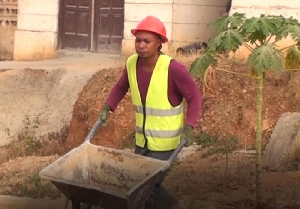The recent decision by the President of the Republic of Ghana to rename the Ministry of Trade and Industry to the Ministry of Trade, Agribusiness, and Industry, and to establish the Ministry of Youth Development and Empowerment under the E.I. Civil Service (Ministers) Instrument, 2025, is a commendable move that reflects a renewed focus on the role of agriculture in Ghana’s economic development.
As an Agribusiness Specialist, a member of the Ghana Society of Agribusiness Scientists, and an alumnus of the Young African Leadership Initiative (YALI), I see this as a progressive step with the potential to transform agribusiness in Ghana.
The inclusion of Agribusiness in the Ministry of Trade and Industry signals a strategic intent to treat agriculture as a business and prioritize value addition across various agricultural value chains.
I believe it presents a significant opportunity for sectors like cocoa to benefit immensely.
For decades, Ghana has been a leading producer of cocoa, yet much of the commodity is exported in its raw form, denying the country the full economic benefits of value addition.
This new focus on agribusiness could be the game-changer needed to address this challenge. By promoting value addition, Ghana can export processed cocoa products, increase foreign exchange earnings, and create jobs for its people.
This, in turn, will enhance the livelihoods of cocoa farmers and contribute significantly to the GDP.
The creation of the Ministry of Youth Development and Empowerment is another notable initiative. Ghana’s youth are a vital resource, and their empowerment is critical to achieving sustainable development.
By aligning youth development with agribusiness, the government can inspire young people to view agriculture as a viable and profitable career. This will not only address youth unemployment but also inject innovation and energy into the agricultural sector.
While these initiatives are yet to be fully implemented, I am optimistic about their potential.
However, their success will depend on effective policies, stakeholder collaboration, and sustained investment in infrastructure, research, and education.
This is a pivotal moment for Ghana’s development, and I commend the President for his bold vision. Let us rally behind this initiative and work together to unlock the full potential of agribusiness, create opportunities for the youth, and build a resilient and prosperous economy for generations to come.
Opinions of Monday, 13 January 2025
Columnist: Francis William Kwame Nyarko Appiah



















